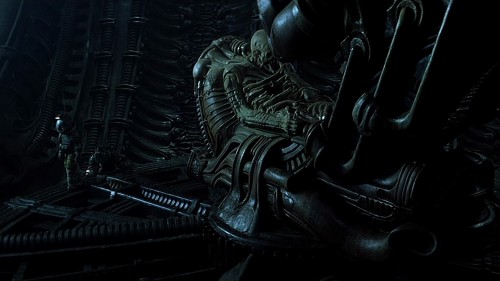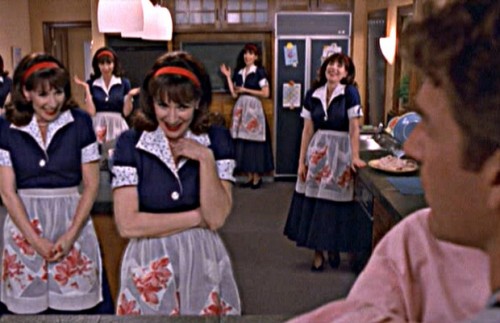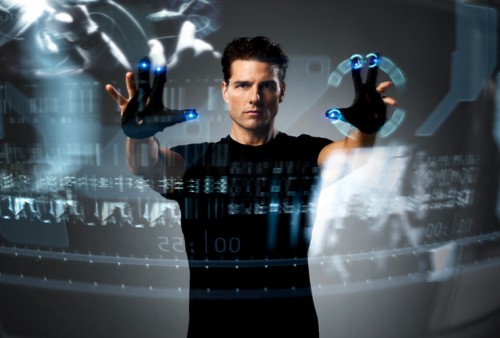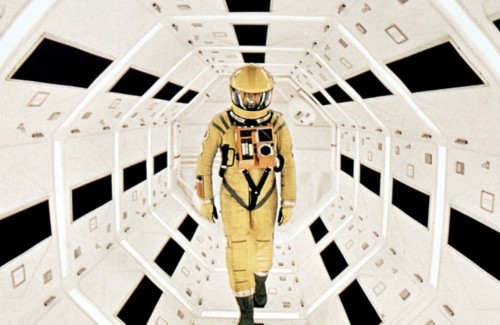Tune into the Future: When Sci-Fi Prophecies Get It Right, by Kate Voss
By melding science fact with science fiction, filmmakers can explore how new technologies may impact and influence our culture before they are actually invented. As moviemaking tools improve, so widens the creative control of SF screenwriters and directors responsible for bringing these visions to life. SF helps us realize both the power and potential of digital worlds, showing how they may impact us and our knowledge of science more broadly if and when they ever manifest themselves in society. Here are five films that showed gave us our first glimpse at some of today’s most important technology.
Alien
The U.S. and Japan will go head-to-head in a giant mecha fight in 2016, effectively entering into a robo-battle of “realistic” proportions. The giant robot suits will be manned by human pilots, and are essentially an over-the-top version of Ellen Ripley’s exoskeleton suit from Alien. While giant fighting mechs surely have their own place in the world, we are seeing a surprising number of advancements in terms of actual exoskeleton production. Multiple companies now produce their own version of a suit that can be worn to increase one’s strength and power while conveniently keeping other evil robots at bay.
Smart House
Despite more or less predicting the future of the “smart”, connected home, the Disney Channel movie Smart House has languished in obscurity since its release in 1999. In this film, a family wins a house that is controlled by an AI program which can do everything for the family. Today, modern technology platforms allow us to bring numerous home apps and electronic devices together and seamlessly control them remotely. Some examples include smart thermostats that can be controlled from your smartphone to achieve the perfect temperature in separate rooms, a home security system which locks windows and doors even when you’re away, and smart light bulbs that can be dimmed and turned on or off from a similarly compatible app.
Minority Report
Though it features many futuristic technologies, Minority Report portrayed one significant technological advancement in particular that resonated with fans. A retinal scan of Tom Cruise’s character allows a billboard to direct ads specifically to him – predicting much of the way in which modern marketing ruthlessly targets individuals. In our modern era, we have billboards all over the world that work in much the same way. While they do not specifically target one person yet (the way many online ads already are, using your Google searches and collecting information about every site you visit, for how long, etc), they do use facial recognition and similar strategies to aim ads at certain demographics in particular. Whether they want to display ads only towards women, transform themselves to hide from the authorities, or even have users followed by virtual pets to increase pet adoptions, it’s clear that tomorrow’s technology will be marketing-oriented as well.
GATTACA
The 90’s sci-fi film GATTACA focused on the genetic modification of humans. Our real-life technology doesn’t yet allow us to create designer babies using any traits we want, but there have been significant advancements in the area of genetic modification. Researchers have been able to modify cells to allow infertile women to have children. More recently, a technology called CRISPR allowed researchers to genetically alter the DNA of nonviable embryos. The project has yet to reach maturity, but thus far it has acted as a big step forward in terms of one day creating genetically modified humans.
2001: A Space Odyssey
If there is one SF film that served as a trailblazer in the genre, it was 2001: A Space Odyssey. HAL, the AI supercomputer featured in the film, eventually loses his “mind” and goes berserk – wreaking havoc on the lives of all those aboard the ship. Thanks to companies like Google, recent technological advancements in the area of AI has led to computer systems gaining similar “intelligence.” DeepMind is a UK based company that tests the “minds” of computers by pitting them against old-school video games. The computer programs learns from playing these games, much the same way a human does. Other innovative Google programs include computer chat conversations that can predict conversation and answer questions. Fortunately or unfortunately, both programs are fraught with various complications – for now.
Any fan of science fiction can tell you that the crazy ideas you see on TV and in movies today are likely to be the technology that wows us tomorrow. Even if they never materialize, the imaginative fantasies that play out in these films are some of the best entertainment around.



































